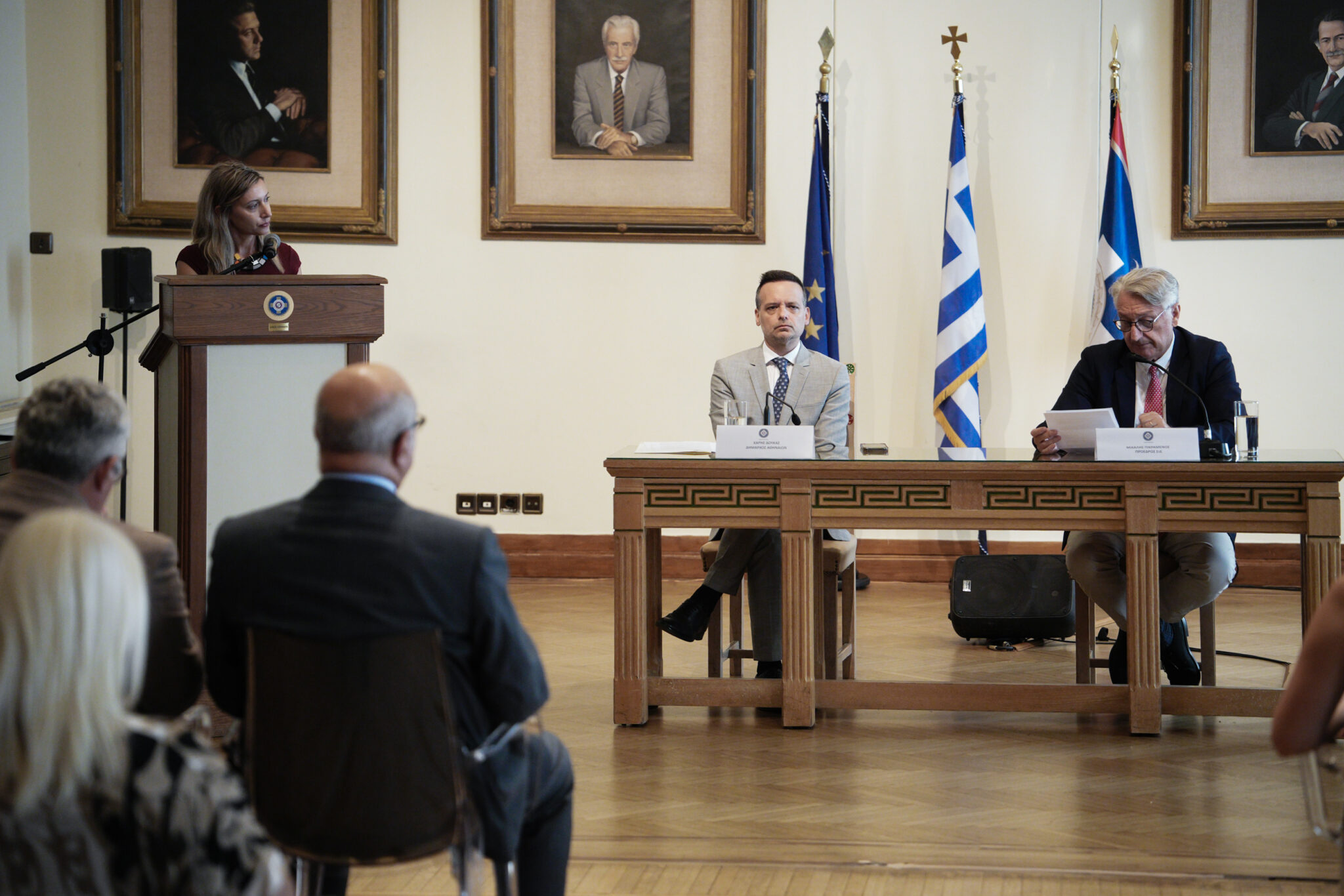The Municipality of Athens had already conducted studies for the redevelopment of the site and had installed an elevator in the building.
During a press conference at Athens City Hall, the Mayor of Athens, Haris Doukas, emphasized that the concession of the building to the Council of State (CoS) serves the public interest:
"Given the opportunity, the Municipality of Athens will do everything in its power to help accelerate the delivery of justice. I’ve seen data showing that the Council of State has reduced its backlog of cases by 8.4%. However, further progress is needed to improve adjudication times. I believe that this decision will allow us, as the Municipality of Athens, to support the institution of justice and its smooth operation."
On his part, the President of the Council of State, Michalis Pikramenos, expressed his thanks to Mayor Haris Doukas for his institutional responsibility and spirit of cooperation, as well as to Minister of Justice Giorgos Floridis, Deputy Minister of Justice Yiannis Bougas, and the Ministry’s Secretary General, Pelopas Laskos.
He noted:
"This decision is not only generous; it is institutionally sound, historically symbolic, and functionally necessary. By repurposing the building to meet the housing needs of the Council of State, we not only utilize a historic structure in central Athens, but also contribute to the revitalization and enhancement of the city center through the creation of a ‘Justice Park’—a space welcoming to both residents and visitors."
The History of the National Printing Office
The iconic building of the former National Printing Office is one of the first structures built in Athens in 1834, shortly after the capital was moved from Nafplio.
It initially housed the first National Printing and Lithography Office. Later, the site became home to the Court of First Instance. In 1984, it was declared a historic preserved monument by the Ministry of Culture due to its architectural significance. All additions to the original city block were demolished, leaving only the main two-story structure intact. This retained both the original ground floor and the 1932 addition of a second floor, made when the courthouse began operating there.
Notably, in 1951, the building hosted the first trial of Nikos Beloyannis. However, since the early 2000s, the site remained closed and unused—except for a brief revival in 2021, when it hosted the 7th Athens Biennale.















